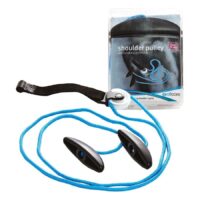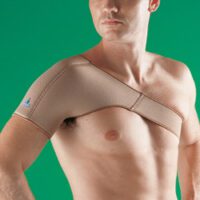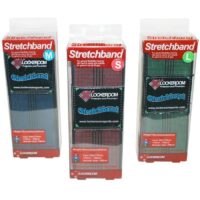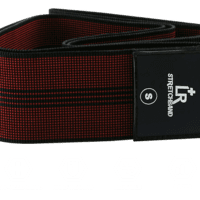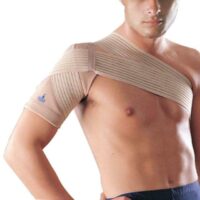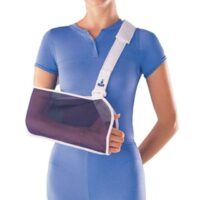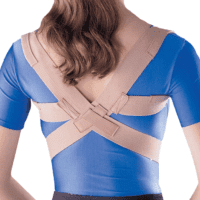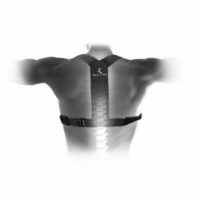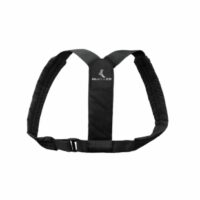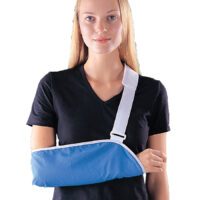Rotator Cuff Tendinopathy
Article by John Miller
Rotator Cuff Tendinopathy: A Physiotherapist’s Perspective
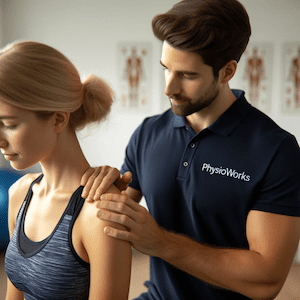
Rotator cuff tendinopathy, also known as shoulder tendinopathy, affects the tendons in the shoulder. This condition can lead to pain and limited mobility, impacting daily activities and overall quality of life. Understanding the causes, symptoms, and treatments is crucial for effective management.
Causes and Symptoms of Rotator Cuff Tendinopathy
Rotator cuff tendinopathy often results from repeated microtrauma rather than a single incident. Common symptoms include shoulder clicking, pain at shoulder height, discomfort when lying on the affected side, and in severe cases, constant shoulder pain. Overuse, poor posture, and age-related degeneration are typical causes.
Diagnosis: Identifying Rotator Cuff Tendinopathy
Physiotherapists and doctors diagnose this condition through symptom history and clinical tests. Ultrasound scans are a preferred diagnostic tool, as they can clearly show tendon damage. X-rays can identify long-term bone changes that impact the condition. MRI scans may also be used to detect other related pathologies.
Comprehensive Treatment Strategies
Treatment varies but generally follows seven key stages:
- Rest and Ice: Reducing inflammation and pain in the early stages.
- Support: Using slings or braces to limit movement and protect the shoulder.
- Range of Motion Exercises: Gradually restoring shoulder mobility.
- Soft Tissue Massage: Shoulder generally repond favourably to soft tissue massage during the acute and subacute phase of an injury
- Scapular Control: Enhancing shoulder blade stability to support shoulder movement.
- Specific Strengthening Exercises: Tailored to the individual’s needs to build strength without aggravating the condition.
- Manual Therapy: Techniques such as joint mobilisations and massage to improve flexibility and reduce pain.
- Functional Training: Preparing the shoulder for a safe return to daily activities, sport, or work.
The Role of Physiotherapy in Managing Tendinopathy
Physiotherapy plays a crucial role in each stage of rehabilitation. Techniques include joint mobilisations, massage, dry needling, and targeted exercises. A physiotherapist’s expertise ensures the correct exercises are performed to avoid aggravation and promote healing.
What to Do? Next Steps and Physiotherapist Consultation
If you’re experiencing symptoms of rotator cuff tendinopathy, consult a physiotherapist. They can provide a tailored treatment plan and guide you through your recovery process. Physiotherapists use their expertise to help you manage pain, improve function, and prevent future injuries.
Conclusion: Embracing a Holistic Approach to Recovery
Managing rotator cuff tendinopathy requires a proactive approach. Consulting a physiotherapist or doctor is key to a successful recovery. For more information or to book a consultation, visit PhysioWorks at physioworks.com.au.
Rochedale - Call 38410277
Book Online: RochedaleSalisbury - Call 32751044
Book Online: SalisburySandgate - Call 32691122
Book Online: SandgateRotator Cuff Tendinopathy FAQs
- What is rotator cuff tendinopathy?
- Rotator cuff tendinopathy is a condition that affects the tendons in the shoulder, causing pain and limited mobility.
- What are the symptoms of rotator cuff tendinopathy?
- Symptoms include shoulder clicking, pain at shoulder height, discomfort when lying on the affected side, and in severe cases, constant shoulder pain or weakness.
- How is rotator cuff tendinopathy diagnosed?
- It is diagnosed through symptom history, clinical tests, ultrasound scans, X-rays, and sometimes MRI scans to detect related pathologies.
- What causes rotator cuff tendinopathy?
- It is often caused by repeated microtrauma, overuse, poor posture, and age-related degeneration.
- How is rotator cuff tendinopathy treated?
- Treatment includes rest, ice, support, range of motion exercises, scapular control, specific strengthening exercises, manual therapy, and functional training. Acute tendinopathy is treated with different modalities to sub-acute or chronic tendinopathy, so please seek the guidance of your trusted shoulder physiotherapist.
- Why should I consult a physiotherapist for rotator cuff tendinopathy?
- A physiotherapist provides a tailored treatment plan, guides recovery, manages pain, improves function, and helps prevent future injuries.
Related Articles
- Shoulder Pain – Discover effective treatments for various shoulder pain conditions.
- Rotator Cuff Injuries – Learn about the causes, symptoms, and treatments for rotator cuff injuries.
- Frozen Shoulder – Understand the condition and how to manage it effectively.
- Shoulder Bursitis – Explore the symptoms and treatment options for shoulder bursitis.
- Shoulder Impingement – Find out how to diagnose and treat shoulder impingement.
- Tendinopathy – General information about tendinopathy and its management.
- Shoulder Labral Tear – Learn about labral tears and their treatment.
- Sports Injuries – Comprehensive guide to preventing and treating sports injuries.
- Posture and Shoulder Pain – The impact of posture on shoulder pain and ways to improve it.
- Manual Therapy Techniques – An overview of manual therapy techniques used in physiotherapy.
These articles provide detailed information on various conditions and treatments related to shoulder health, offering valuable insights and practical advice.















